Cold, sick, hungry, displaced: Afghans face a disastrous winter
As the winter snow begins to fall in Afghanistan, 8 million people are on the brink of famine. A million children under the age of five are at risk of dying over the next three months without immediate help.
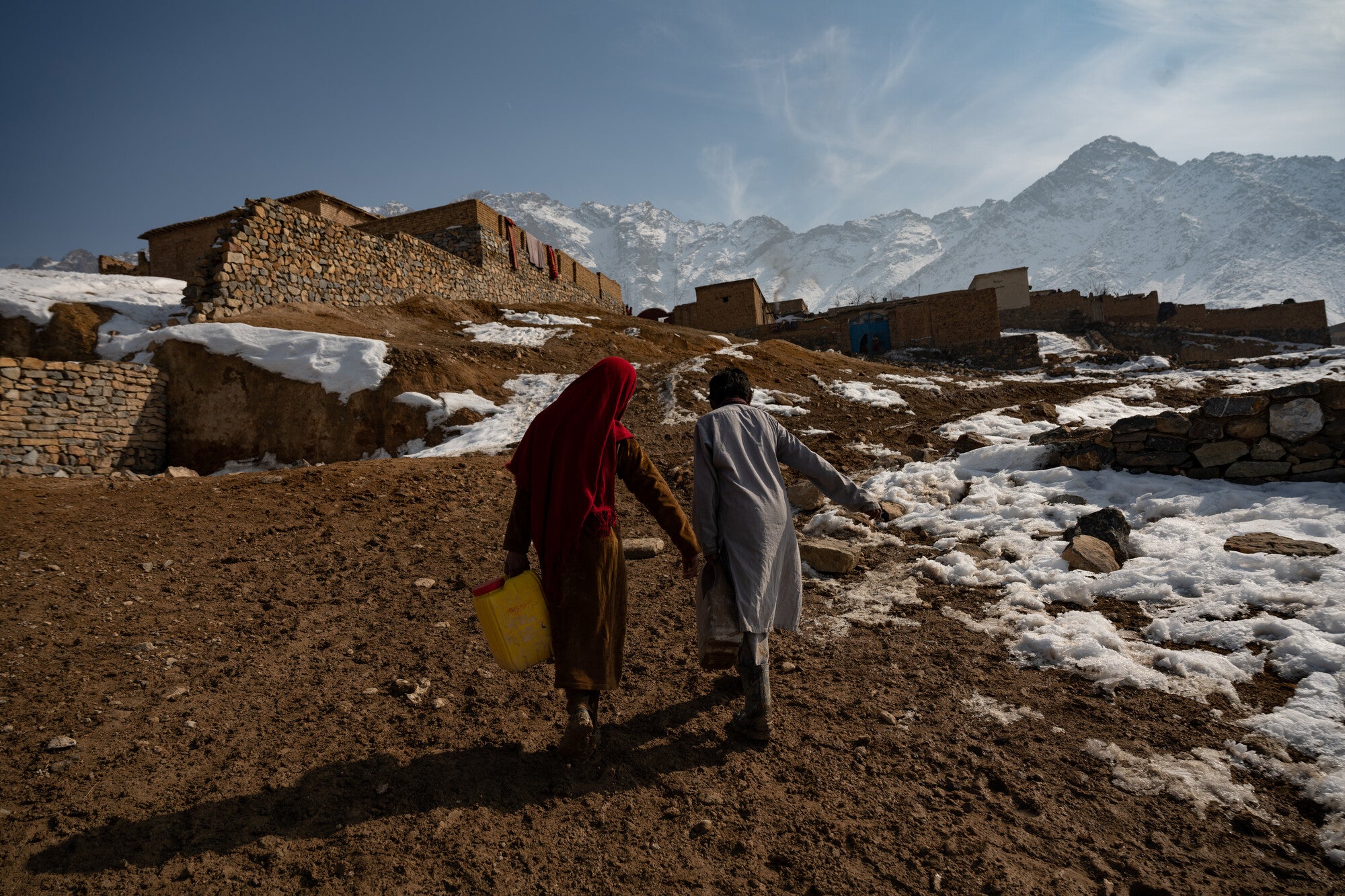
Your support helps us to tell the story
From reproductive rights to climate change to Big Tech, The Independent is on the ground when the story is developing. Whether it's investigating the financials of Elon Musk's pro-Trump PAC or producing our latest documentary, 'The A Word', which shines a light on the American women fighting for reproductive rights, we know how important it is to parse out the facts from the messaging.
At such a critical moment in US history, we need reporters on the ground. Your donation allows us to keep sending journalists to speak to both sides of the story.
The Independent is trusted by Americans across the entire political spectrum. And unlike many other quality news outlets, we choose not to lock Americans out of our reporting and analysis with paywalls. We believe quality journalism should be available to everyone, paid for by those who can afford it.
Your support makes all the difference.Conflict and economic collapse, coupled with the worst drought in 27 years and the Covid-19 pandemic, have brought Afghanistan to a tipping point. With 3.5 million people displaced from their homes and bitter temperatures expected to drop below -15C in places, the situation looks bleak.
Saleh Saeed, chief executive of the Disasters Emergency Committee (DEC), said: “Afghanistan is in freefall. People are starving.
“Food shortages and skyrocketing prices mean that people are selling everything they have just to buy basic supplies.
“When there is nothing left to sell, many people are going into huge amounts of debt. They are taking every action they can, but the situation is impossible.”
The DEC, a coalition of 15 member aid charities, sounded the alarm bell on 15 December with the launch of an appeal to fund live-saving food, shelter and healthcare for millions of Afghans who face acute food shortages and a freezing winter.
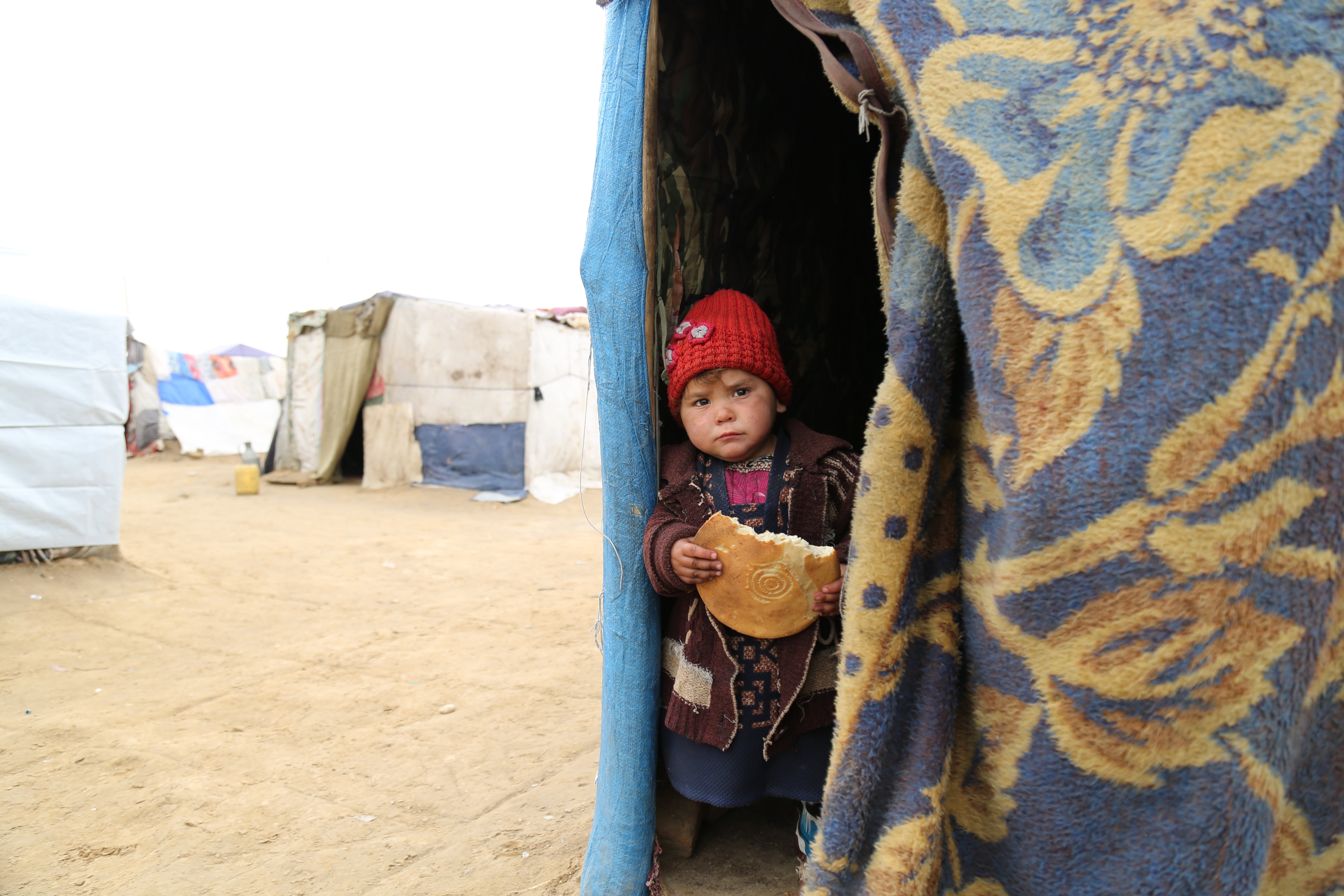
Years of conflict, poverty, and the disruption caused by the pandemic were already taking their toll on the people of Afghanistan. The drought is the worst to hit the country in 27 years, causing crops to fail and herders to sell livestock. Many have been forced from their homes, looking for new ways of earning a living.
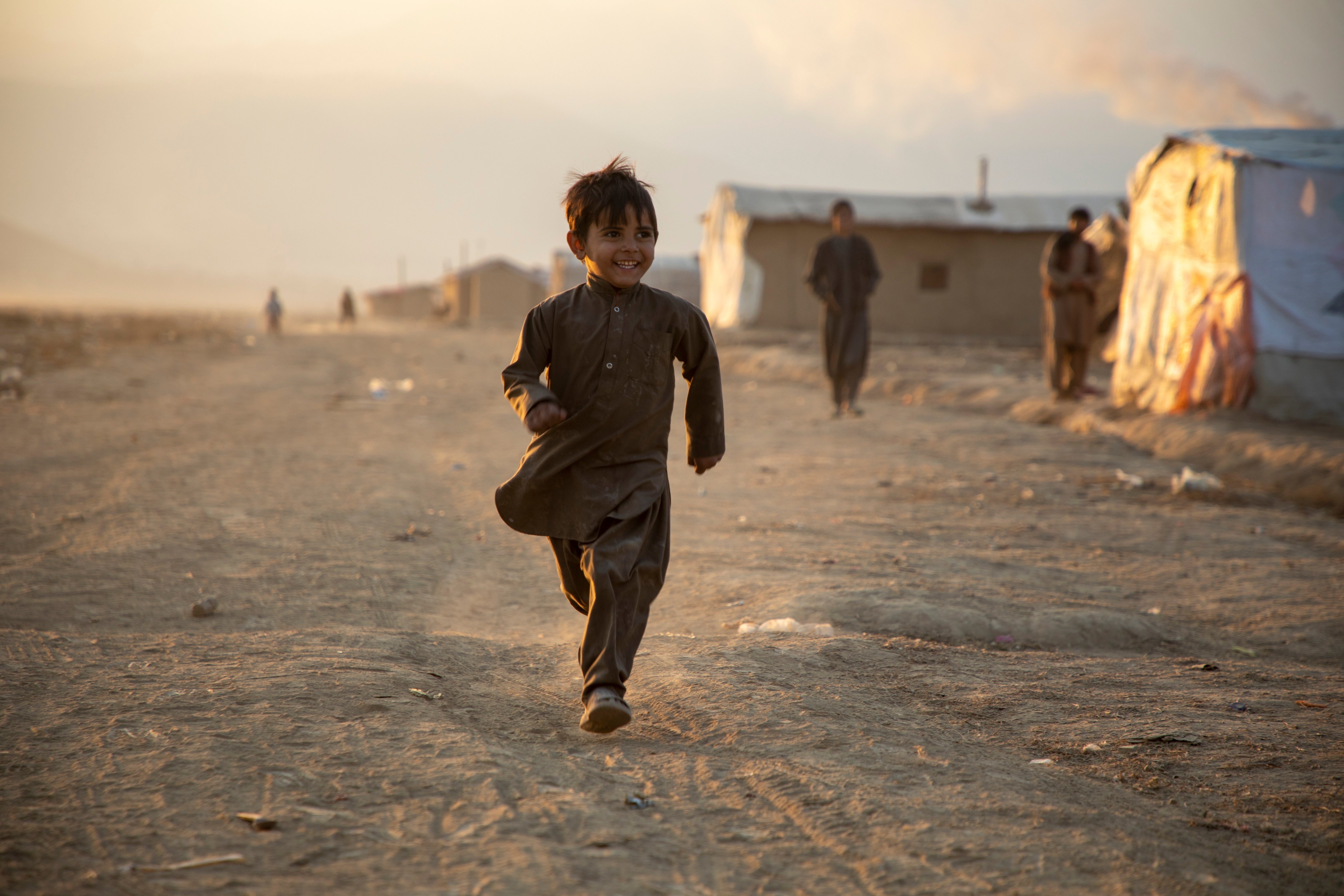
The total Afghan population is about 40 million. At the end of 2020, there were 3.5 million Afghans already displaced across the country, and by mid-September 2021, increased fighting meant a further 678,000 people had fled their homes – 80% of whom were women and children.
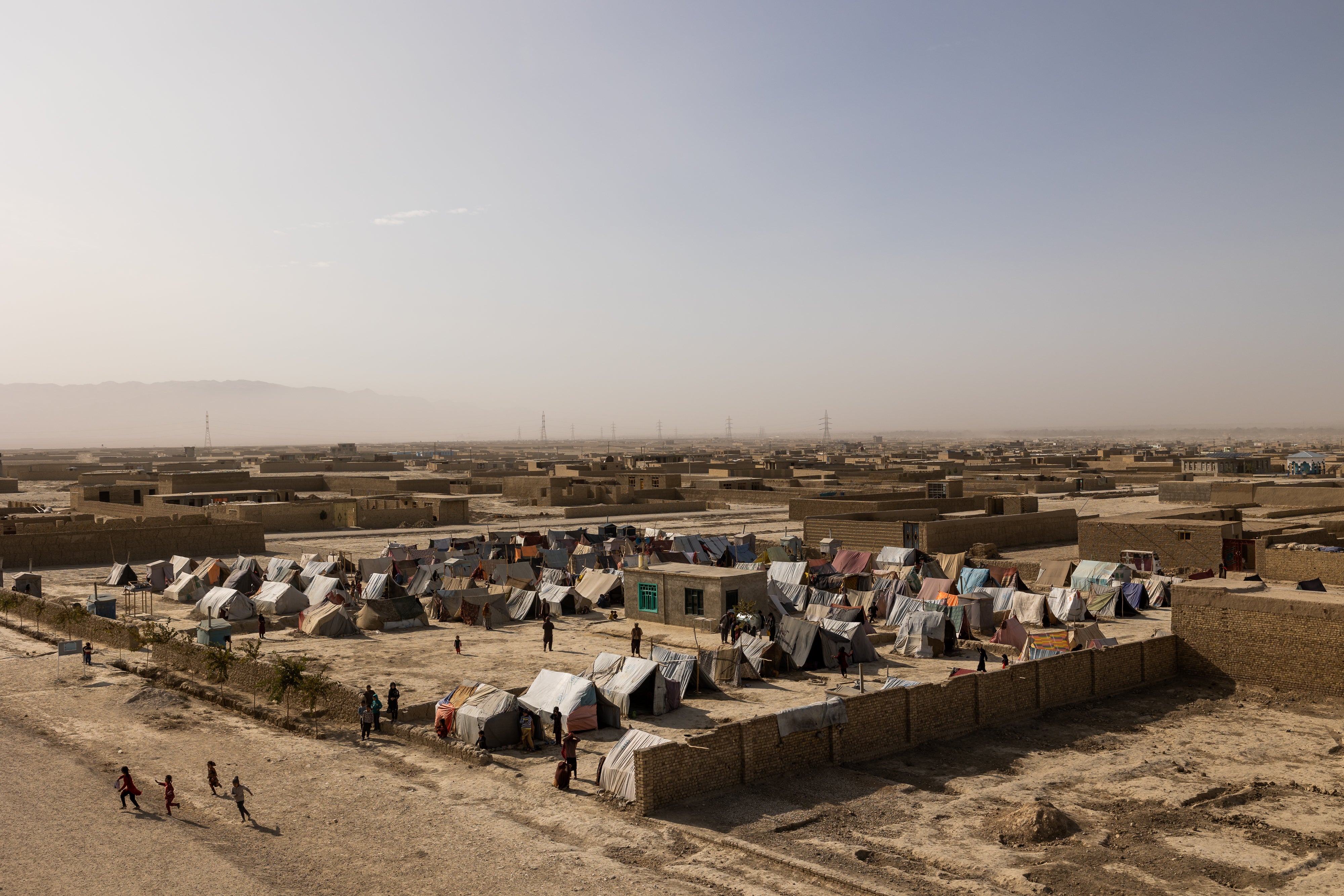
DEC members are providing “winterisation kits” of blankets and warm clothes, and are providing stoves and three months’ supply of wood.
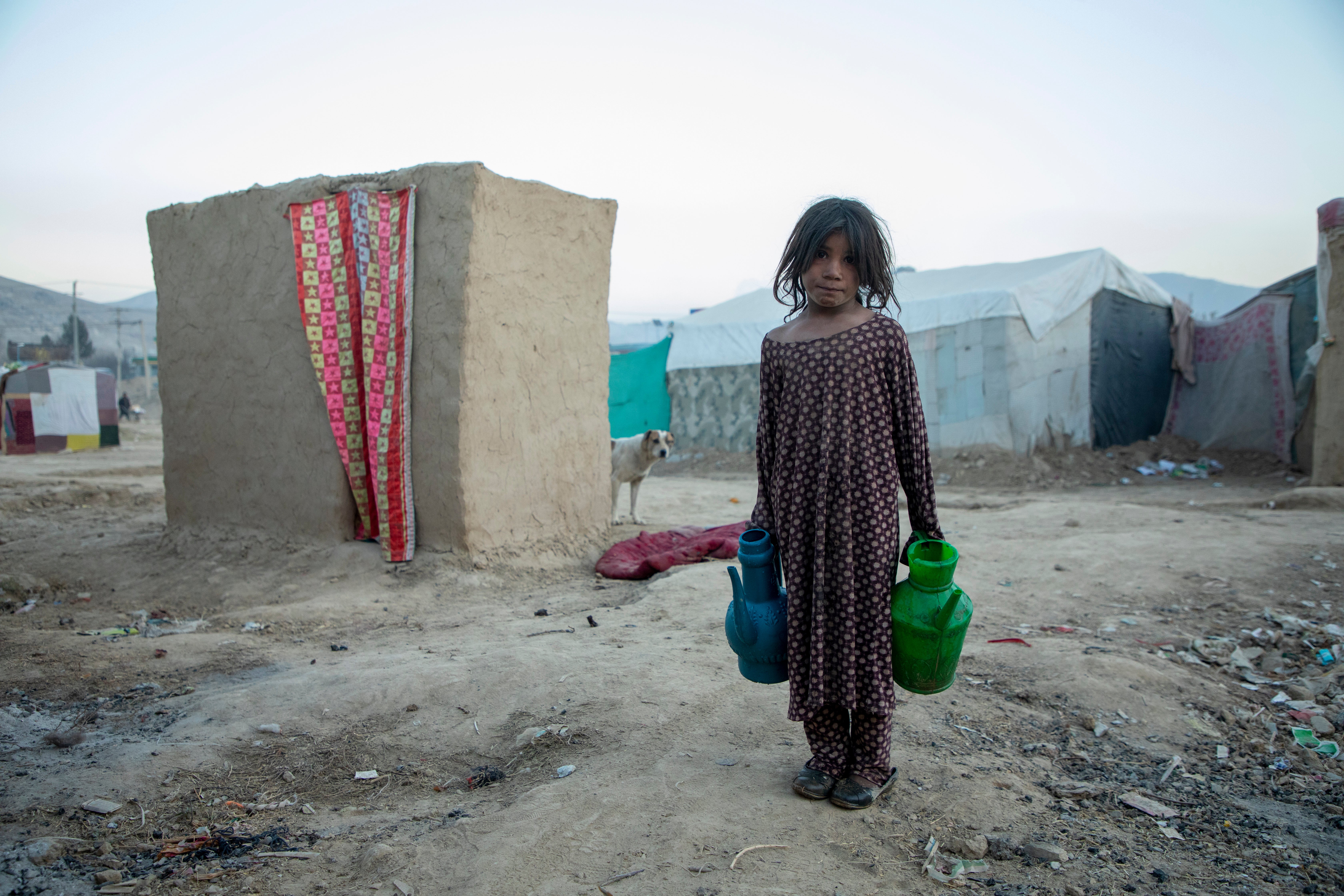
Many of those affected by this crisis will be children: 47 per cent of the Afghan population is under 15 years old, and the UN estimates that 12.9 million children need of humanitarian assistance. Protecting the most vulnerable children is therefore a priority for DEC members.
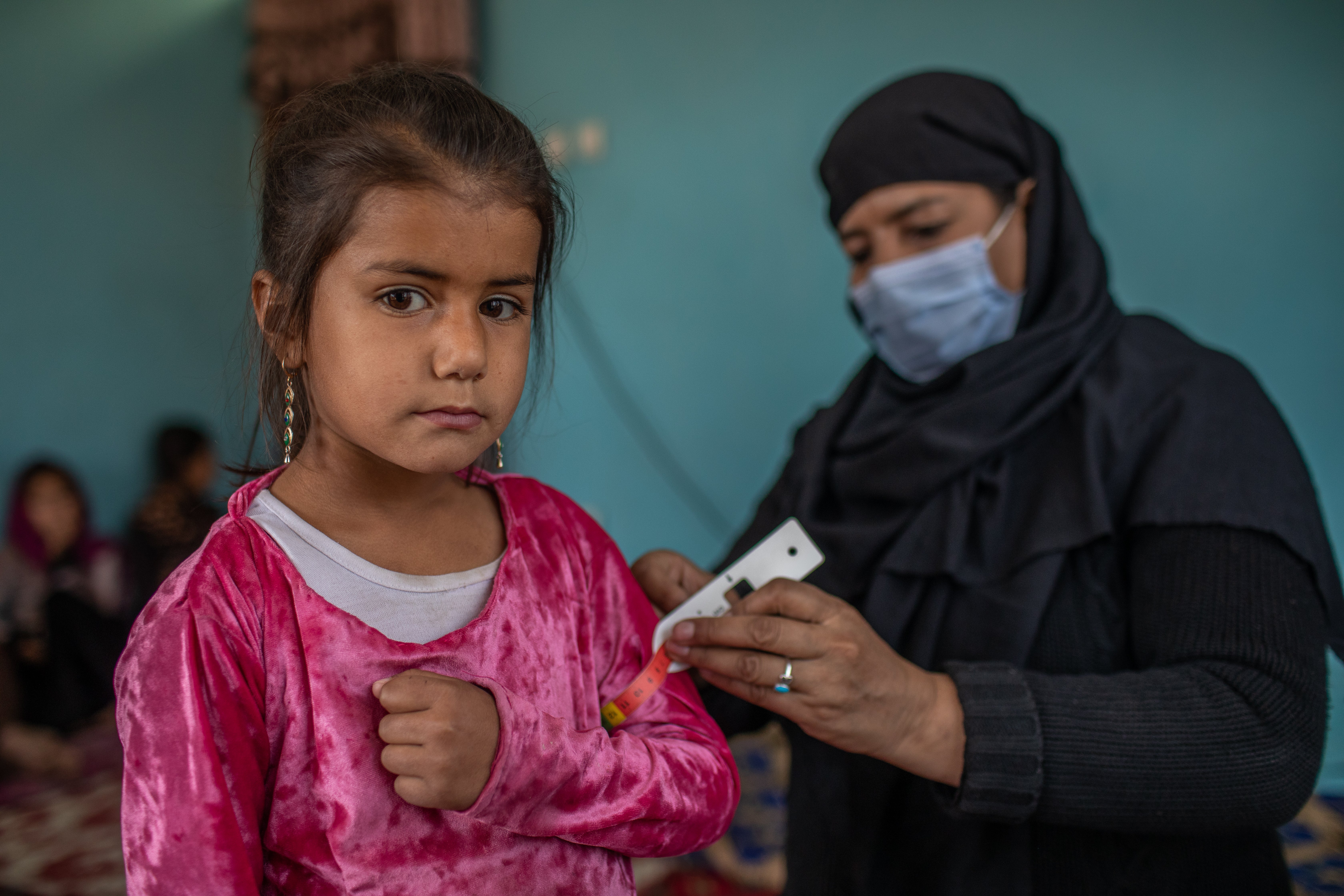
DEC charities have negotiated access for female aid workers to ensure that the needs of women and girls are being met.
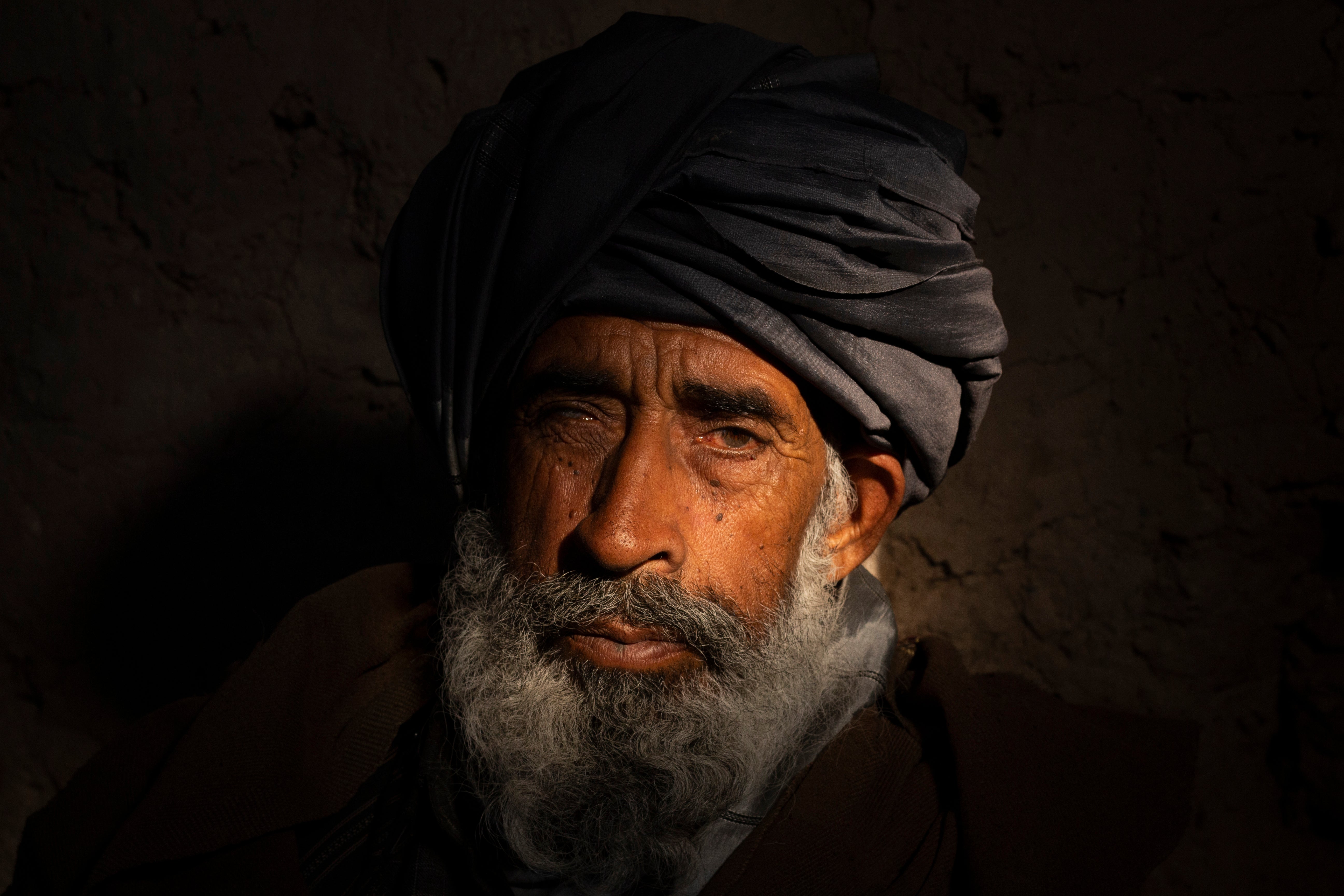
Afghanistan has consistently been rated one of the worst countries for the elderly by the Global Age Watch Index. Older people in Afghanistan will be at risk of malnutrition and the impacts of the cold this winter. But there are few health services available.
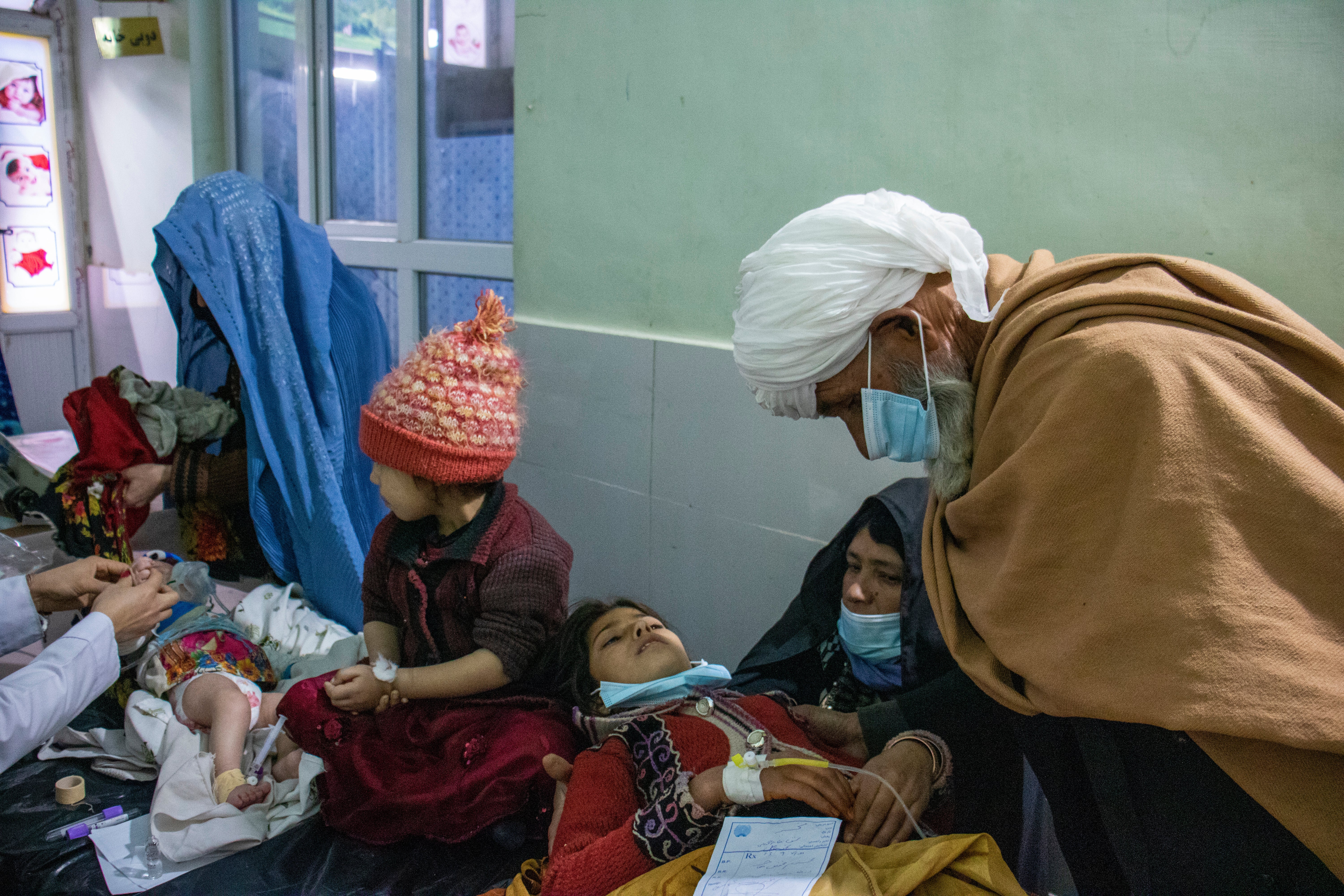
A key priority for the DEC is to ensure these services remain operational and that children continue to receive life-saving treatment.
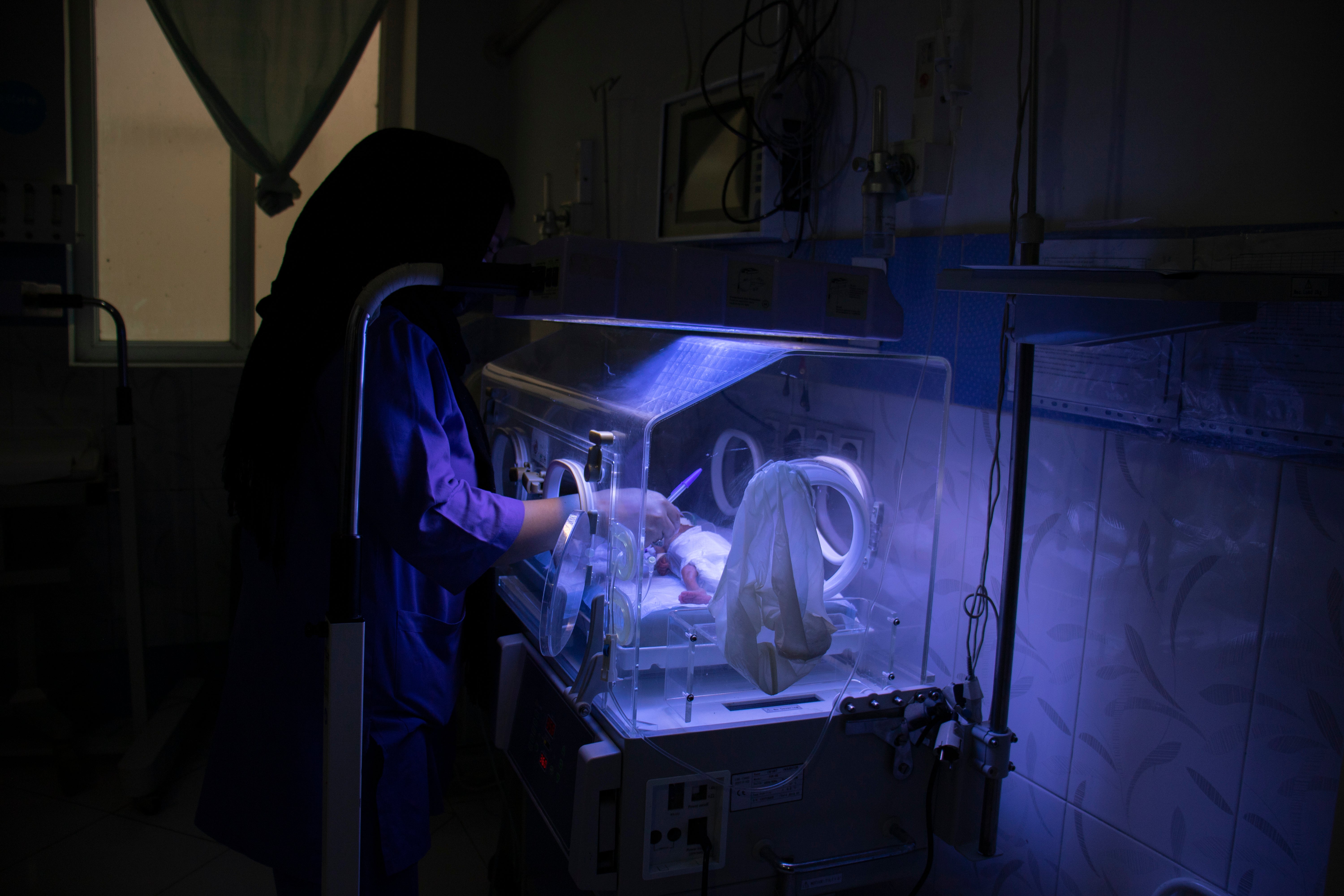
There has been a spike in premature births due to stress and ill health in the mothers. Health services are creaking under the pressure as nurses and doctors report shortages of basic medicines and supplies.
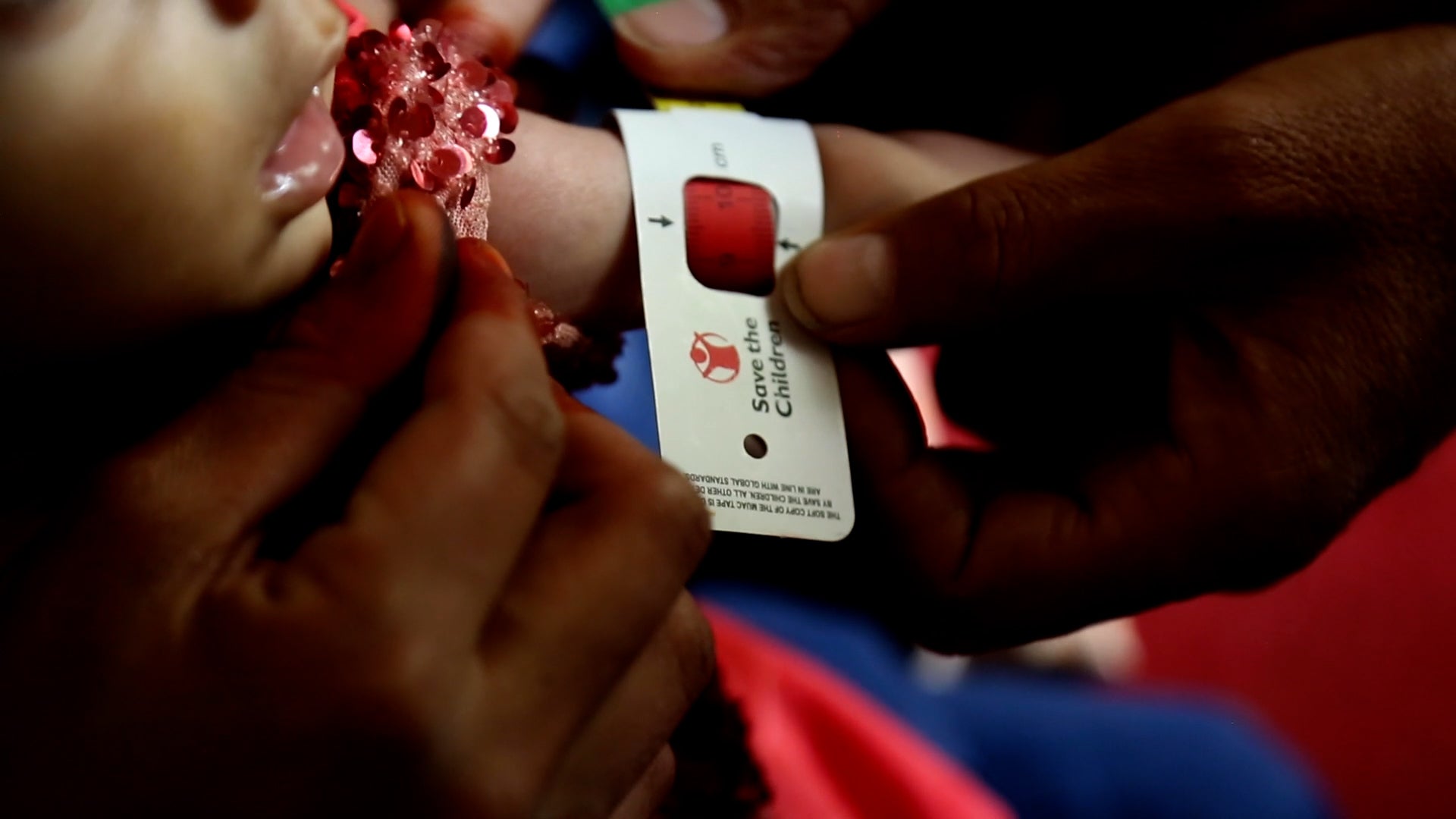
More than 3 million children under five are expected to suffer from acute malnutrition before March, with at least a million of these at risk of dying. The head of the World Food Programme describes the situation as “the worst humanitarian crisis on earth”.
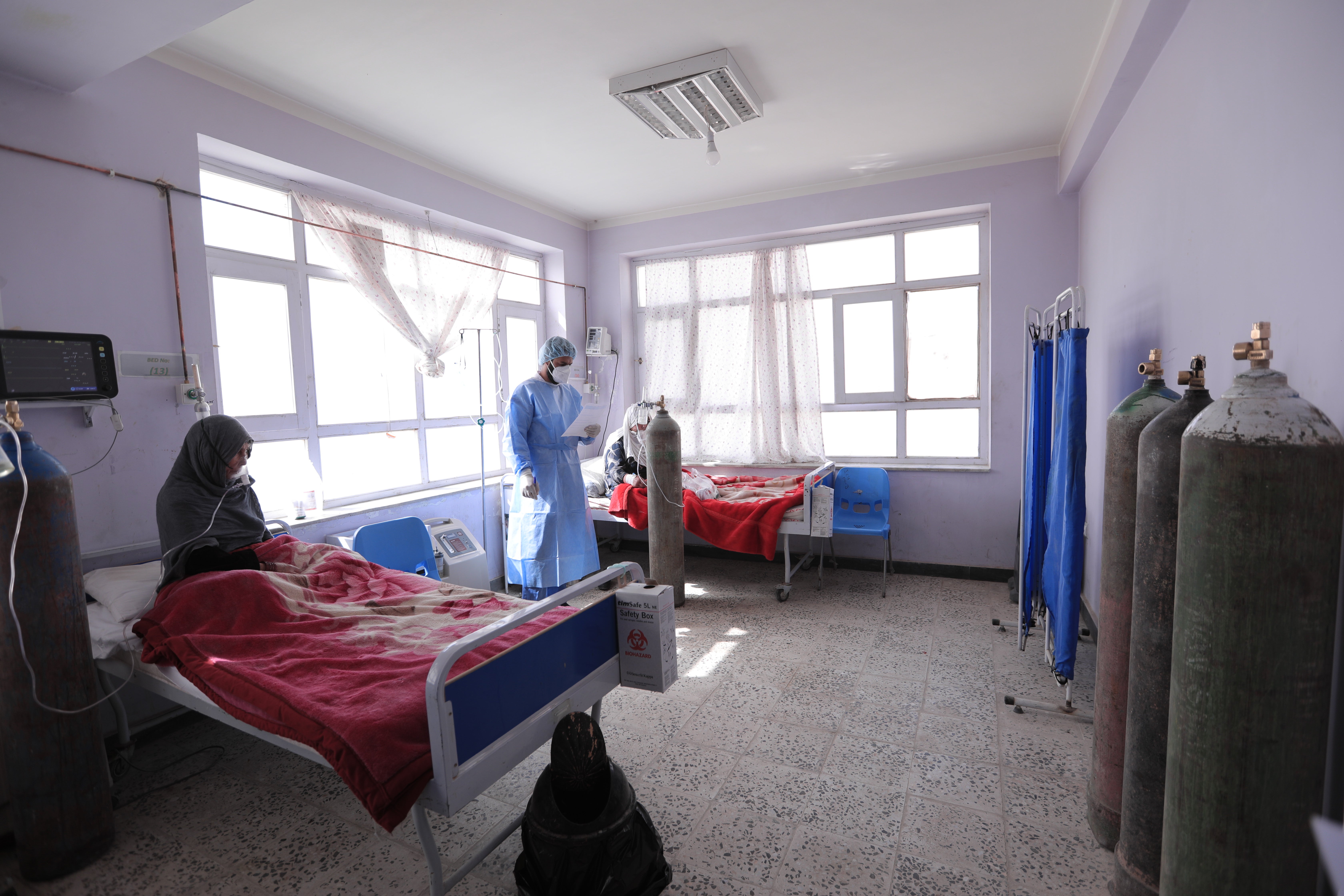
In mid-December only 9.1% of the population were reported to have been vaccinated. Here at a Covid treatment ward in a hospital in the central province of Ghazni, patients have access to oxygen but there is no intensive care.
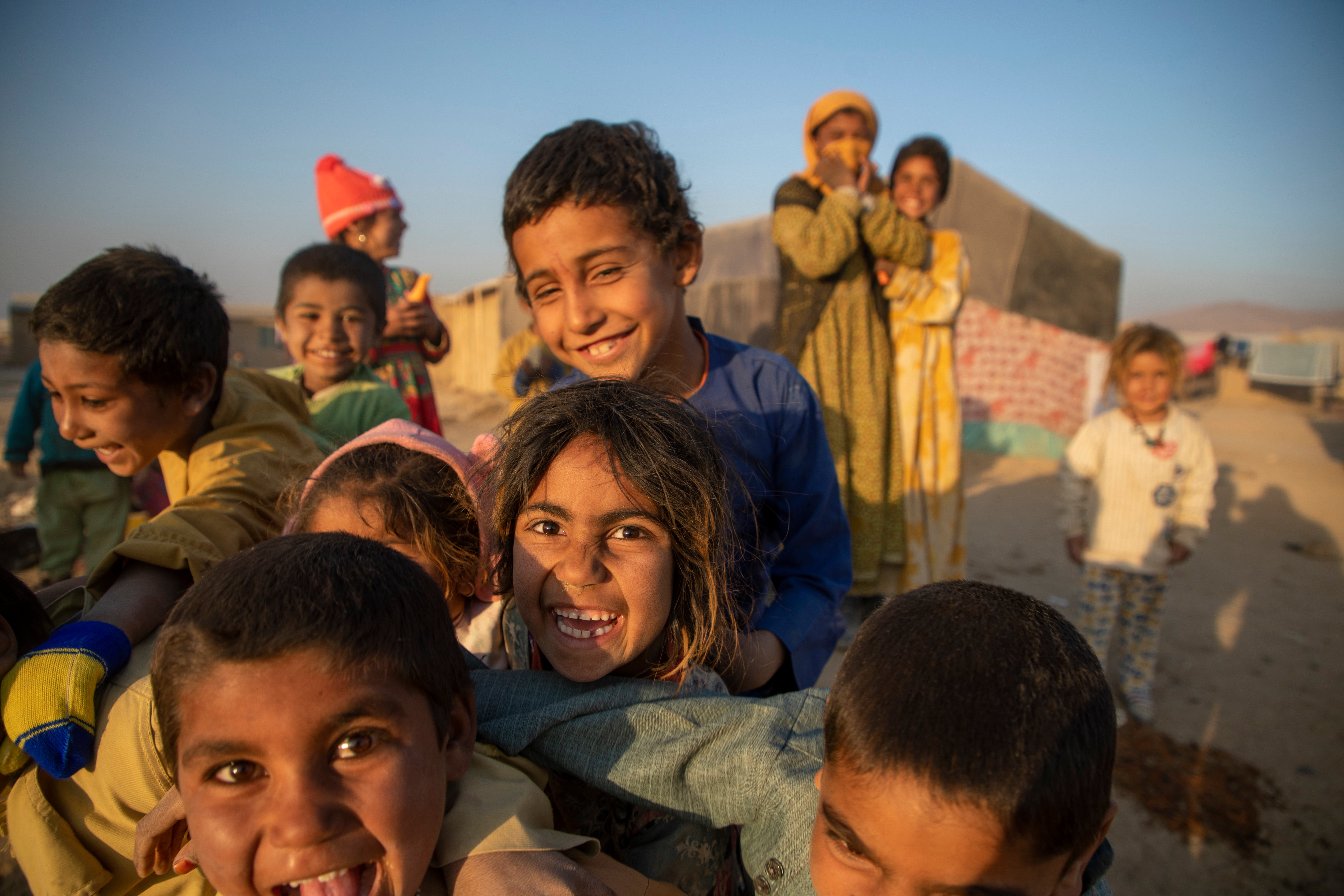
Member charities are scaling up their operations, and mobile teams have been deployed to screen children for malnutrition and provide treatment. Agencies have started supplying cash grants for people to buy vital basic commodities.
The need is vast. More than half of Afghanistan’s population do not know where their next meal is coming from.
A £20 donation could feed a family for a week. To support the DEC Afghanistan Crisis Appeal visit www.dec.org.uk
All names have been changed to protect the identity of the individuals
Join our commenting forum
Join thought-provoking conversations, follow other Independent readers and see their replies
Comments